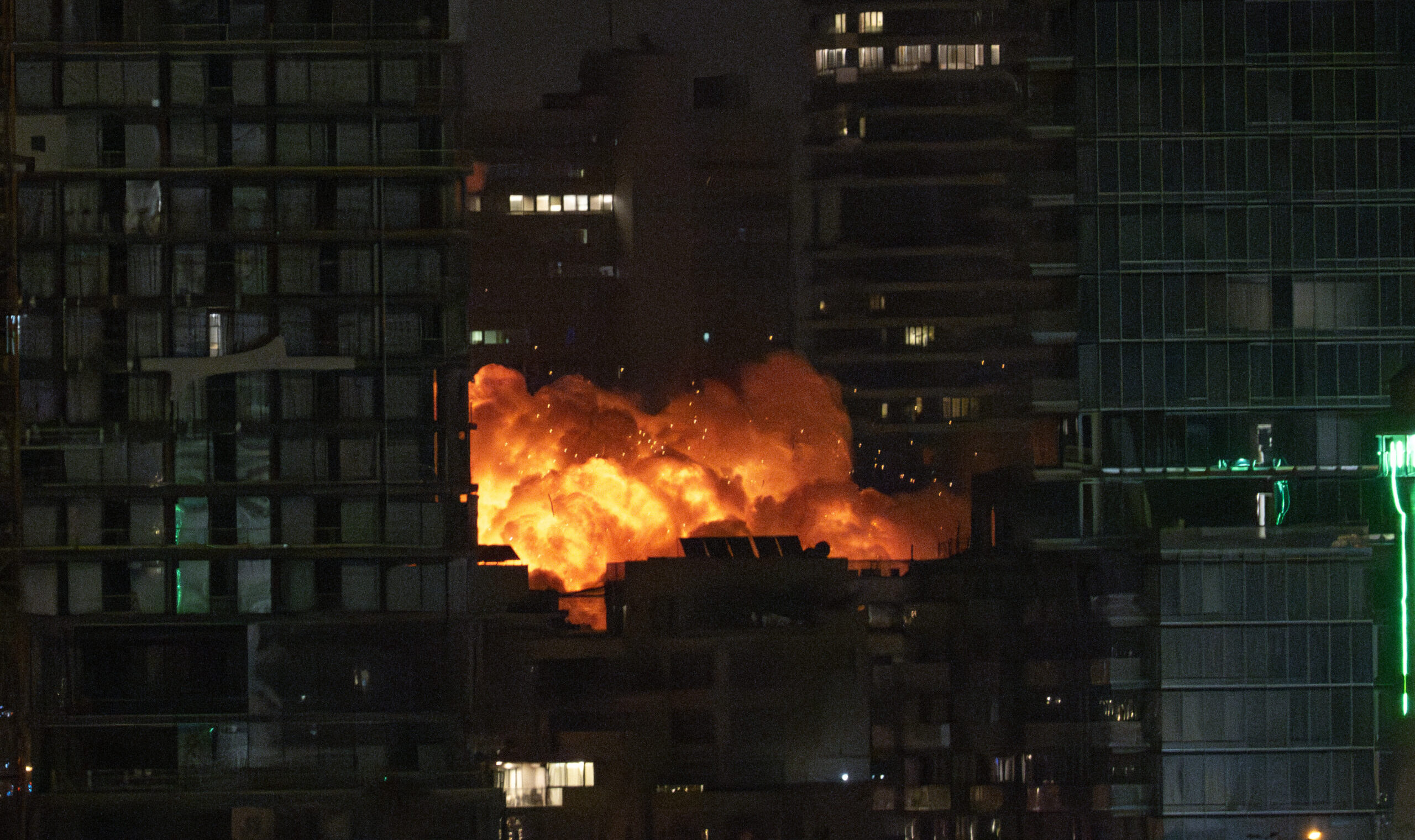
There has been some controversy about whether the Trump administration ought to join Israel’s bombing campaign to finish off Iran’s nuclear sites—controversy and even hysteria, as the neoconservatives hoot their way back in from the metaphorical desert and the America Firsters bemoan the prospect of their country’s returning to the literal one.
So what are the actual concerns? No serious person wishes to see a nuclear-armed Iran; the question is whether preventing it is better achieved by diplomacy or by military intervention. Of course the overriding fear is that the U.S. will get involved in another Middle Eastern ground war. It seems unlikely that this is on the short-term policy menu. That, at least, is a very good thing. The concern is that the apparent current path—directly joining Israeli operations to destroy Iranian nuclear facilities—will result in a situation that draws the U.S. into continued and deeper involvement.
If the strikes do not themselves topple the Iranian regime (a possibility advanced by some optimistic hawks), it seems plausible that Tehran will pursue a nuclear weapon irrespective of foreign opposition, all other deterrents having fallen short; while Iran’s nuclear infrastructure may be totally destroyed, the conventional wisdom is that it will still have the knowledge base to rebuild. This would commit Iran’s antagonists to a policy of “mowing the grass.” While this sounds like a simple, hard-headed concession to reality, it presents serious logistical and political difficulties: The expense of periodic bombing campaigns, their tendency to promote asymmetrical responses from an embattled Iranian regime (including, perhaps, terrorism on American soil), and the inherent destabilizing effects on the regime itself will always invite policymakers to propose a “permanent” solution via regime-change. (After American involvement in direct strikes supporting a campaign that began in the midst of U.S.–Iran negotiations, it seems unlikely that the Iranians will be jumping up and down at the prospect of more American diplomacy.)
Comparisons of the proposed strikes to Israel’s 1981 Osirak strike in Iraq are, to my mind, less promising than they seem on the surface; the Osirak strike encouraged Saddam Hussein to accelerate and harden his nuclear program. This was only dismantled after the Gulf War brought in an international diplomatic presence, which could actually tally what the Butcher of Baghdad had achieved and monitor what he was getting up to. Not exactly encouraging if your goal is to avoid a ground war. Comparisons to the assassination of Qasem Soleimani, which failed to produce the significant blowback many (including this writer) expected, are more encouraging, but it is not clear that what was true of a single targeted assassination will be true of a strategic bombing campaign.
Subscribe Today
Get daily emails in your inbox
It is worth repeating in detailed terms that regime change, whether spontaneous or by some near-to-middle future intervention, is not an attractive prospect. While the ayatollahs are not popular—low voter turnout in Iranian elections does not speak to enthusiastic support for the system—it is not clear that there is a desirable alternative waiting in the wings. Reza Pahlavi, the eldest son of the last shah of Iran, does not seem like a serious man, and the fact that his own PR is casting him in the role of Israeli client seems unlikely to make him popular among his countrymen who just got bombed by the Israelis. The MEK is, for the lay audience, Baathism without the charm or sophistication, with some light cultism mixed in to keep things fun. If the army seizes power, would you bet against revanchism following a national humiliation like this? And, at the same time, do you feel confident that a Shia ISIS equivalent will not emerge? Chaos in Iran, especially an Iran with the technical base of a nuclear threshold state, is not good for an America that is trying desperately to pay less attention to the region so it can play whack-a-mole in more important theaters. (Unintended consequences also obtain for the agonists closer to the action: The American invasion of Iraq, which was vigorously supported by Israel, is in part what led to a period of Iranian ascendency.)
As our own Sumantra Maitra is fond of quoting, in international relations, power begs to be balanced. The Begin doctrine and its corollaries set up a permanent imbalance that demands the frequent and indefinite application of force to maintain. The most effective way for Israel to realize this doctrine is by encouraging American involvement, by hook or by crook; every small and middle power would prefer to have the world’s superpower lending a hand with its conflicts. That does not mean it is in the American national interest. It is easy to see how the U.S. can start with bombing and end in tears.
I may be wrong; my analysis may be bad. Or chance may intervene, as does sometimes happen in the great affairs of history—sometimes you get away with something stupid. But participating in Israel’s bombing campaign does not seem certain to bring about a sure end to the Iranian nuclear program, and seems to preclude the use of other tools in the foreign-affairs kit. And it does not seem certain that one thing won’t lead to another, and Americans will inexorably return to the sandbox.


